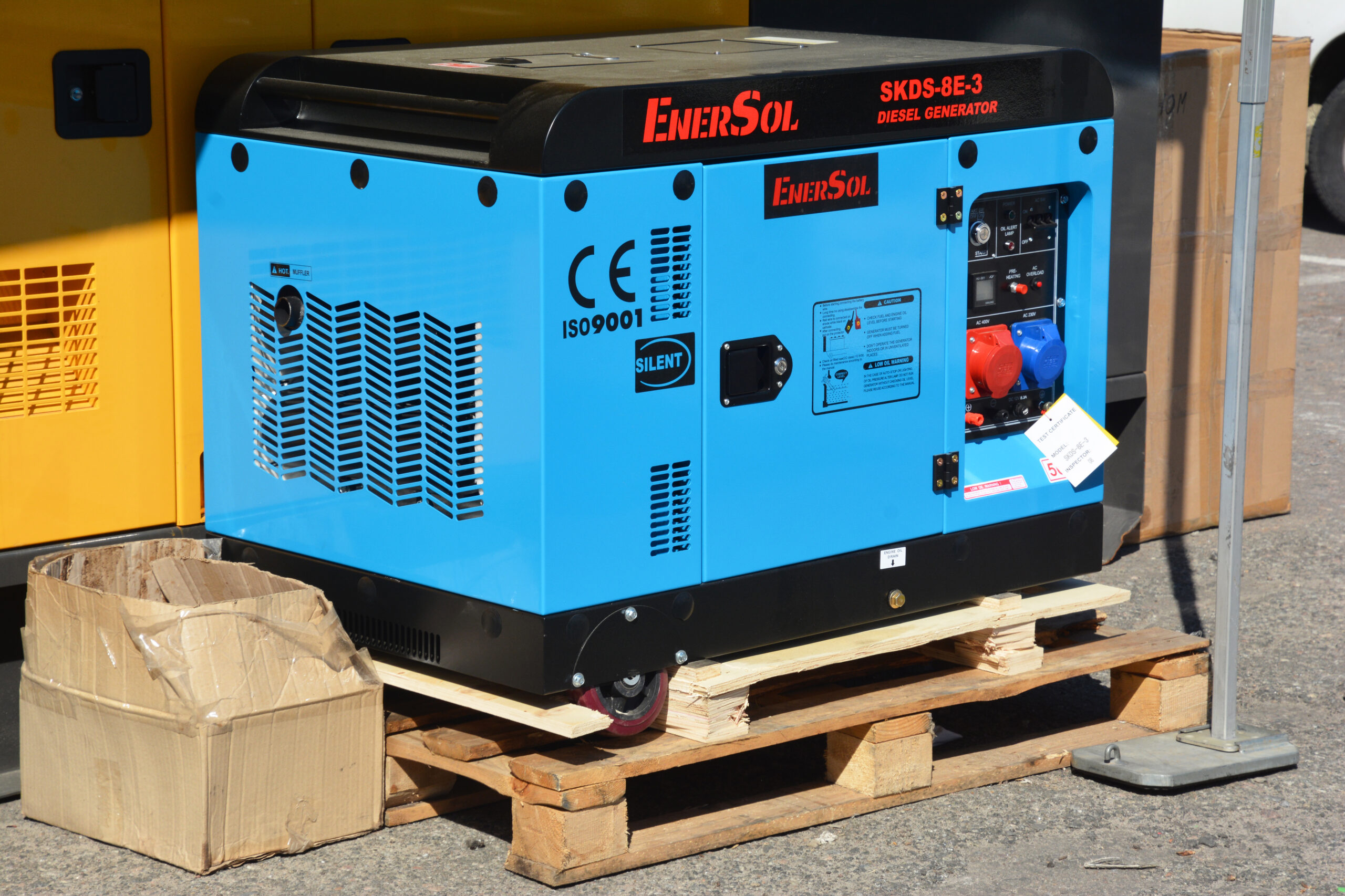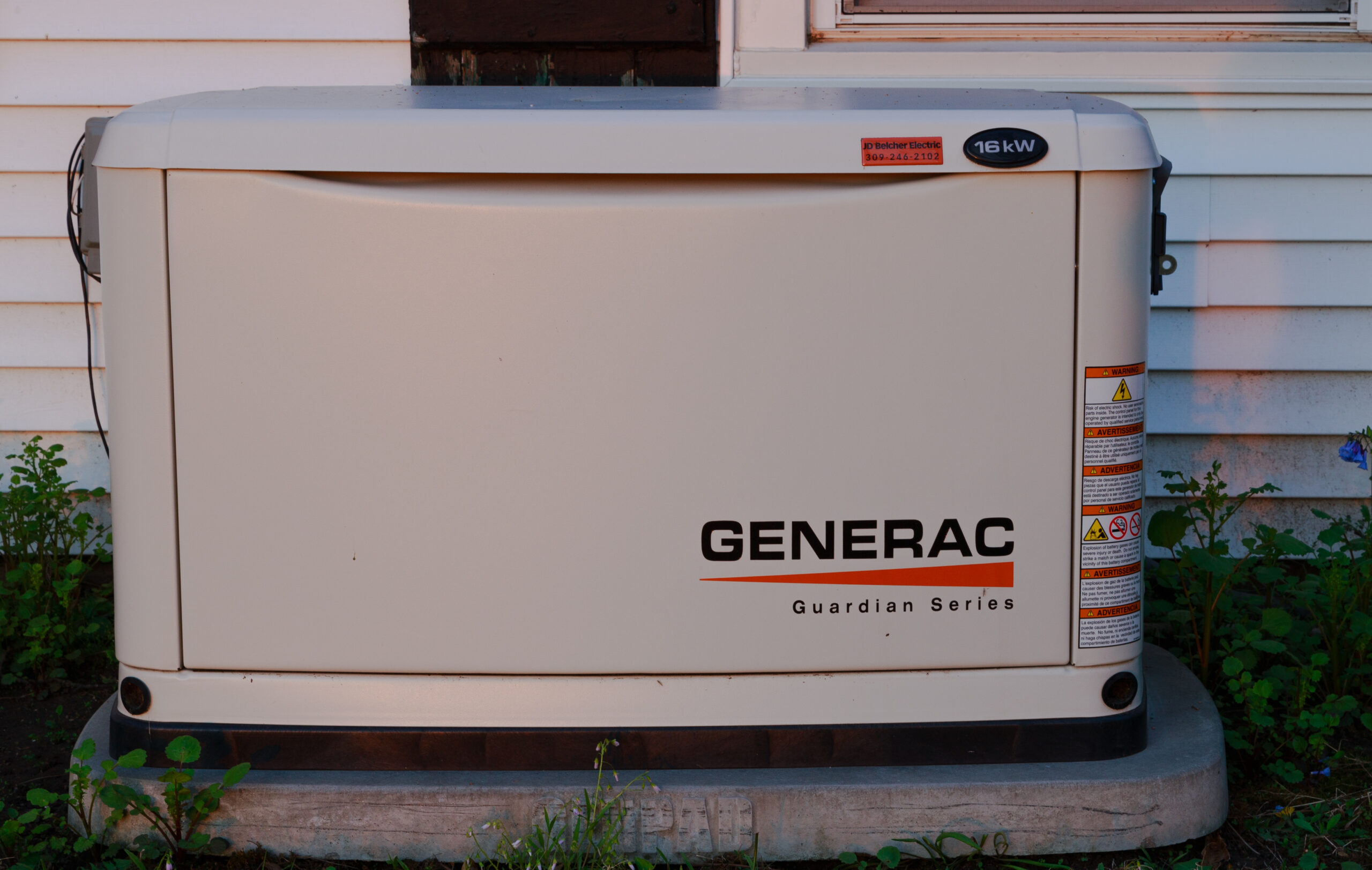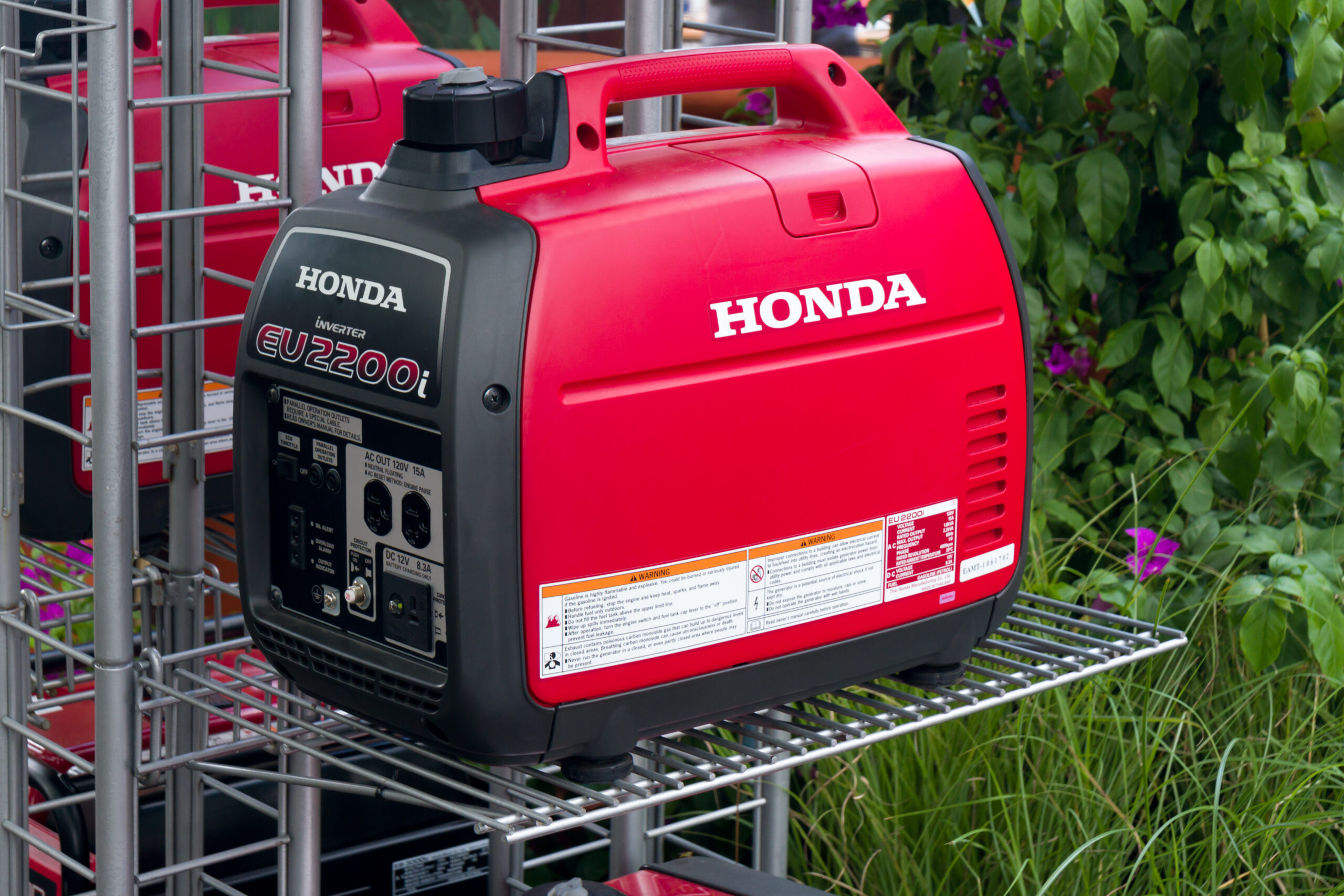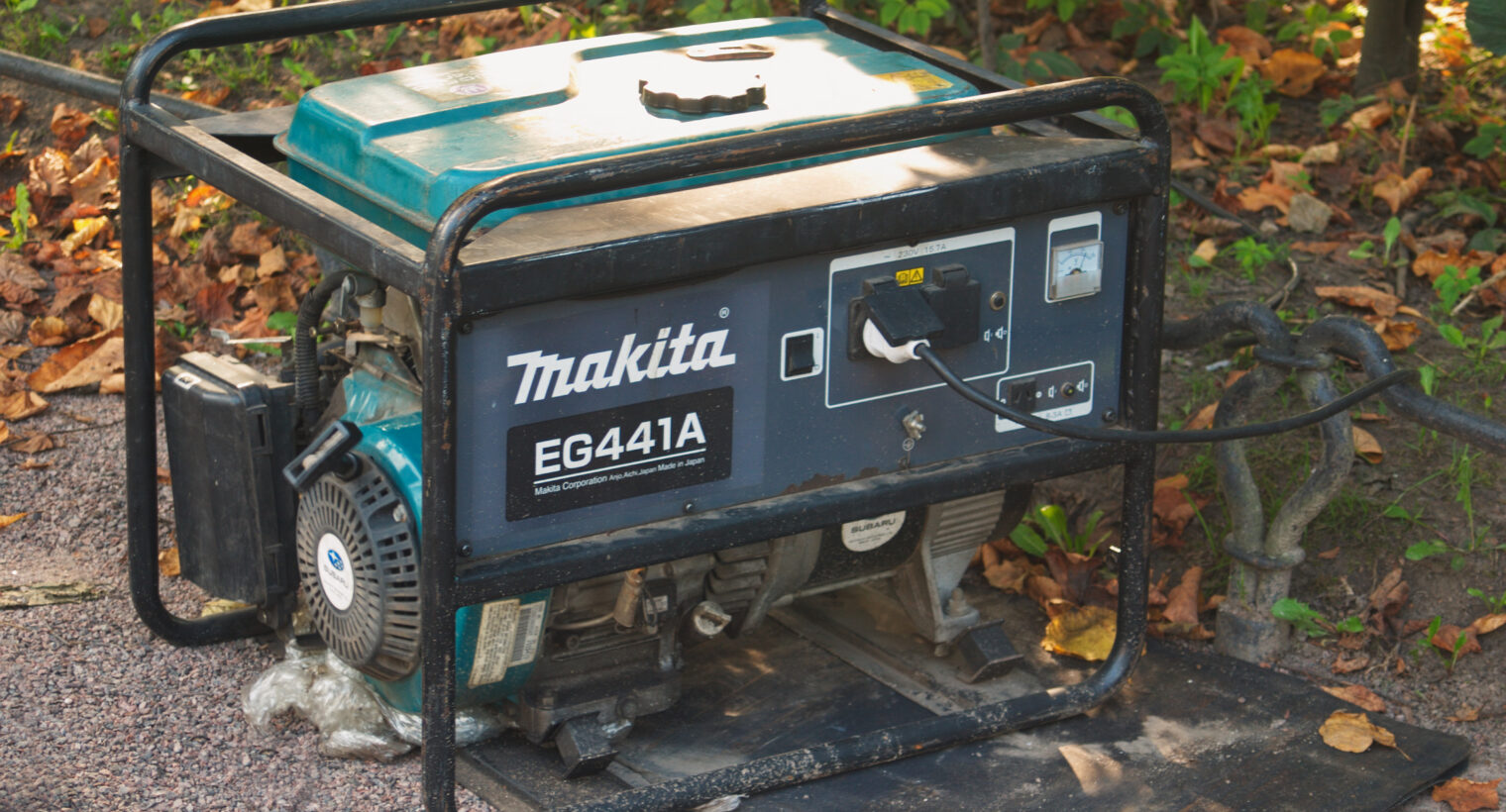This article is your complete guide on how to use a generator in a power outage. To use your generator, start by placing the generator outdoors in a well-ventilated area away from doors, windows, and vents. Also, use heavy-duty extension cords to connect appliances directly to the generator’s outlets. Or, you can install a transfer switch for a more permanent solution. Having a generator can provide a reliable source of power to keep essential appliances and electronics running when there is an extended loss of power. However, using a generator requires proper knowledge to ensure safety and efficiency. Our guide will explore everything you need to know about using a generator during a power outage so keep on reading!
Here at The Energy Professor, we want to give you the information you need to not only save money on your energy bill but to also become more energy efficient. We hope you find this post helpful! And makes it easier for you to know more about how to use a generator during a power outage. Be sure to also check out our one-of-a-kind energy savings calculator!
The Energy Professor Electricity Rate Check Tool
How to Use a Generator During a Power Outage

During a power outage, knowing how to use a generator safely and effectively can be a lifesaver. In long outages, generators are crucial for maintaining power to essential appliances and electronics. To use your generator safely, start by placing the generator outdoors in a well-ventilated area away from doors, windows, and vents. This will help prevent carbon monoxide buildup from entering your home. Use heavy-duty extension cords to connect appliances directly to the generator’s outlets. Or, you can also install a transfer switch for a more permanent solution. The most important things to be aware of when using a generator during an outage are power surges and avoiding overloading the generator. Make sure to use the generator only to power essential devices. Prioritize your safety at all times and consult the manufacturer’s instructions for proper operation!
- Install battery-operated carbon monoxide alarms
- Disconnect your normal source of power
- Know where and how to position your generator
- Keep the generator dry
- Plug equipment directly into the generator
- Take care of your fuel
- Inspect and maintain your generator quarterly
Let’s go into depth on some of the more important parts of working your generator.
Where to Place a Generator
The placement of a generator is crucial for safety and optimal performance. Place the generator outdoors in a well-ventilated area at least 20 feet away from doors, windows, and vents to prevent carbon monoxide poisoning. Make sure it is placed in a dry environment and protected from rain and snow by using a generator cover or canopy. Never operate the generator indoors or in enclosed spaces.
How to Connect a Generator
Use heavy-duty extension cords to connect appliances directly to the generator’s outlets. Many generators come with a twist-lock connector. This reduces the chance of accidental disconnections from the generator from the motor vibration. For a more permanent solution, consider installing a transfer switch to safely connect the generator to your home’s electrical panel, allowing you to power selected circuits directly. This should be done by a qualified electrician and never as a DIY project.
Use Caution When Powering Your House with a Generator
While generators provide temporary power during outages, they can also pose risks if not used correctly. Avoid overloading a generator by only powering essential appliances and electronics. Be mindful of power surges when connecting devices, and never operate a generator in wet conditions to prevent electrical shock or fire hazards.
Related Post: Everything You Need in Your Power Outage Emergency Kit
How to Turn Off Generator When Power Comes Back On

When the power comes back on after an outage, disconnect all appliances and devices from the generator to prevent power surges. Next, turn off the generator’s engine using the designated shut-off switch or knob. Allow the generator to cool down for a few minutes before turning off the fuel supply to the engine. Once the generator has cooled completely, empty the fuel tank if it won’t be used for an extended period. Following these steps will ensure the safe operation and storage of your generator.
- Unplug all appliances/devices from the generator
- Turn off the engine
- Turn off the fuel supply
- Empty the fuel tank
Can You Operate a Generator in the Rain?
No, operating a generator in the rain poses significant safety risks due to the potential for electrical shock or damage to the generator. If it’s raining, shut off the generator and wait for the weather to clear before restarting it. Consider investing in a weatherproof generator enclosure to protect the unit from the elements while in use.
Related Post: Power Outage VS Power Surge
Proper Use and Storage of Generator Fuel

Always turn the generator off and let it cool down for at least 20 minutes before handling the fuel supply. When storing the generator fuel, make sure to store fuel in approved containers in cool, well-ventilated areas away from ignition sources. Local laws may restrict the use or storage of fuel so also your local fire department on your specific requirements. Always use fresh fuel and additives as recommended by the manufacturer on the label and avoid overfilling the fuel tank to prevent spills and leaks.
Can You Fill a Generator While It’s Running
No, attempting to fill a generator while it’s running causes the potential for fuel spills and sparking fires. Any fuel spilled onto the hot motor will ignite the fuel. Always shut off the generator and allow it to cool before refueling! When refilling the fuel tank, use a funnel to pour the fuel into the tank slowly to avoid overfilling. Wipe up any spills immediately and dispose of fuel and containers properly.
Related Post: What Should I Do During a Power Outage?
How to Use a Generator for House Power Outage FAQ

Q: Can I Run a Generator Indoors During a Power Outage?
A: No, it is not safe to run a generator indoors or in enclosed spaces due to the risk of carbon monoxide poisoning. Always operate generators outdoors in a well-ventilated area.
Q: How Do I Determine the Right Size Generator for My Home?
A: The size of the generator you need depends on the appliances and devices you want to power during an outage. Consider the wattage requirements of each item and choose a generator with a capacity that meets or exceeds your total wattage needs.
Q: Can I Use a Generator in the Rain?
A: It is not recommended to operate a generator in the rain due to the risk of electrical shock or damage to the unit. If it’s raining, shut off the generator and wait for the weather to clear before restarting it.
Q: How Often Should I Service My Generator?
A: Regular maintenance is essential for ensuring the proper operation and longevity of your generator. Follow the manufacturer’s recommendations for maintenance intervals, including oil changes, filter replacements, and overall inspections.
Q: Are There Any Safety Precautions I Should Take When Using a Generator?
A: Yes, there are several safety precautions to follow when using a generator. These include keeping the generator outdoors in a well-ventilated area, using heavy-duty extension cords, avoiding overloading the generator, and never refueling while it’s running. Additionally, be mindful of power surges and always prioritize safety when operating a generator during a power outage.
Do you Need Cheaper Electricity?
If you’ve taken the time to understand the information on your bill and discovered you’re paying more than you’d like for your electricity, have you looked around for a cheaper deal? The Energy Professor has a wealth of information on ways to save on your utilities, including details of top deals that could significantly reduce your monthly or quarterly electricity bills.
We hope you found this article helpful! If you are looking for ways to increase energy efficiency and sustainability in your home be sure to take a look at all of the latest renewable energy options in your area. The Energy Professor helps residential and small business owners find qualified energy suppliers in New York, New Jersey, Pennsylvania, Texas, Ohio, Maryland, Illinois, and Massachusetts.


